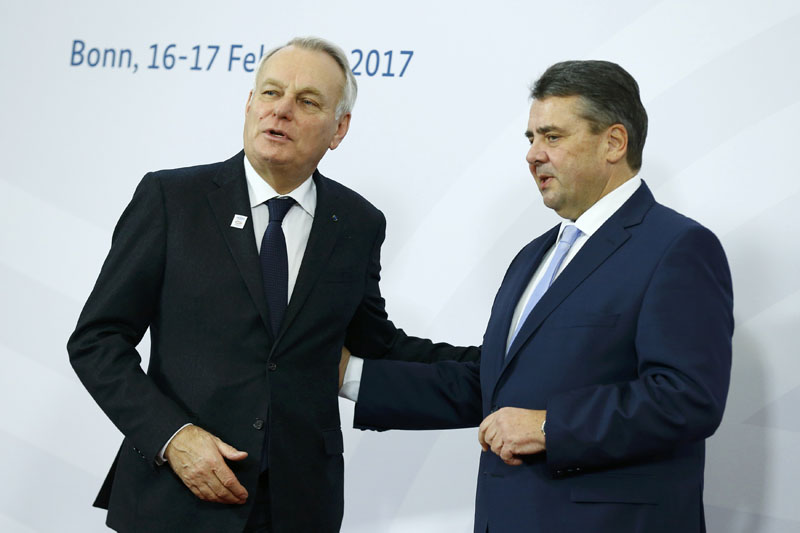France says US position on Middle East peace 'confused and worrying'
BONN: France considers the US position on the Israeli-Palestinian conflict "confused and worrying", its foreign minister said on Thursday, reacting to US President Trump's dropping of the America's commitment to a two-state solution.
Jean-Marc Ayrault met Secretary of State Rex Tillerson at a G20 meeting of foreign ministers in Bonn where, he said, he got some reassurance about Washington's stance on Russia, but little on the Middle East.
"I found that there was a bit more precision (on foreign policy) even if I found that on the Israeli-Palestinian dossier it was very confused and worrying," Ayrault said of his meeting.
"I wanted to remind him after the meeting between Donald Trump and (Israeli Prime Minister Benjamin) Netanyahu that in France's view there are no other options other than the perspective of a two-state solution and that the other option which Mr Tillerson brought up was not realistic, fair or balanced."
He did not specify what other option Tillerson had proposed. At a news conference in Washington with Netanyahu on Wednesday, Trump said: "I am looking at two-state, and one-state, and I like the one that both parties like."
On Russia, Ayrault said he was happy to hear Tillerson say that sanctions on Russia over its actions in Ukraine would only be lifted if there was progress on the Minsk agreement to end fighting in east Ukraine.
"With Russia we have some serious points of disagreement and they have to be put on the table. It's not by making friendly statements that problems will be resolved," Ayrault told reporters. Tillerson remained "quite general" on the subject, he said.
Having just returned from Tehran, Ayrault said he was concerned by the new administration's calls to review from scratch the agreement between major powers and Iran over its nuclear program.
"The deal must be completely respected by Iran, but it is out of the question to open up a new construction site for an agreement that was reached in difficulty. I sense that there was a difference of opinion or at least question marks," he said.
He said the real debate on Iran now was not the nuclear deal, but its "interference" in the region, especially Syria and Iraq.
When asked whether Tillerson had clarified the US position on Syrian peace negotiations and whether it still backed UN efforts, Ayrault said it appeared so, but that more talks would take place on Friday.
"Between the campaign speech, the tweets and what I heard from Tillerson, it's the start of clarification," Ayrault said, referring to the administration's foreign policy.






